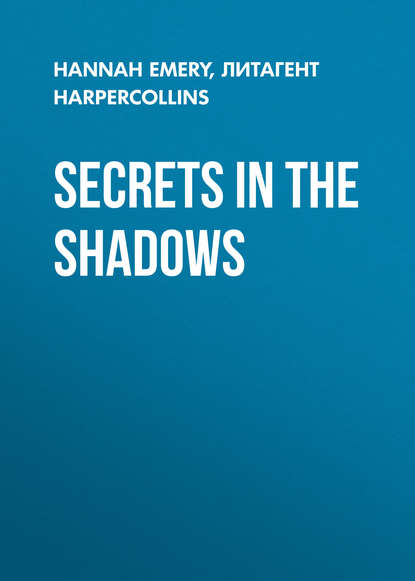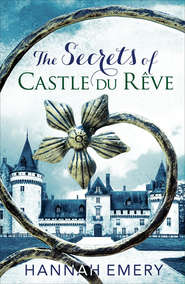По всем вопросам обращайтесь на: info@litportal.ru
(©) 2003-2025.
✖
Secrets in the Shadows
Настройки чтения
Размер шрифта
Высота строк
Поля
‘I’m not used to snow. We hardly ever get any in Blackpool,’ she said.
Her father didn’t correct Louisa’s present tense. He smiled and wiped a piece of ice from his rounded jaw. ‘It’s because of all the salt near the sea. It stops the snow from settling.’
Louisa nodded, her face frozen and all her words used up, for now. But it had been a start. A very good start.
When they had thrown snowballs, and made a tall snowman with currants for eyes, a stone nose and a shoelace mouth that insisted on falling and dangling on one side, Louisa and her father went back inside. Louisa changed into some dry clothes and her father asked Nancy to make them some hot chocolate.
‘I don’t often have hot chocolate,’ Louisa’s father said as they sat sipping.
‘It’s nice,’ Louisa said.
‘Nancy is good to me.’
‘Yes. She’s nice.’
There was a stretch of silence dotted with sipping. Louisa looked out of the window. The sky hung down heavily, yellow grey. The snow would continue forever, it seemed.
‘Mum talked about somebody,’ Louisa said all of a sudden, leaning forward a little, her heart racing. ‘She talked about a boy with purple eyes. She talked about finding him. But I don’t know who he was.’
Louisa’s father scratched his chin and shook his head. ‘No,’ he said sadly, ‘I don’t know who he was, either.’
‘Perhaps if I could find him, he would be able to tell me where Mum went?’
Louisa’s father put down his hot chocolate and Louisa saw that he hadn’t finished it. ‘Perhaps.’
‘Is somebody else living in my house now?’ Louisa asked. Her toothbrush and clothes and a couple of dolls she had outgrown had been parcelled up and sent to her a few weeks after she had moved into her father’s, and she still hadn’t looked in the box properly. She felt that if she did, a sorrow too deep to recover from would pull her in. So the things that had been sent were still untouched, in Louisa’s big fancy wardrobe next to her new, soft bed.
Her father sighed sadly. ‘Yes. It’s being used as a guest house now.’
Louisa swallowed a big gulp of chocolate and scalded her throat. So that was it. She couldn’t go back. ‘It feels strange to think of somebody else brushing their teeth at my sink,’ she said, wondering if her father would understand.
He nodded, and sighed again.
‘I can’t sleep at night,’ Louisa said next. It was as though her words were suddenly dripping out with no control now, like her mouth was a broken tap. ‘I can’t seem to sleep without the sounds of the sea.’
‘I see. And a girl needs her sleep.’
Louisa nodded, pleased that her father appeared to be listening to her and thinking about what she had said. It seemed so long since she had had a conversation, a real one where she felt like something had happened at the end of it.
‘You know,’ her father said after a little time, ‘if you hold a seashell up to your ear, then you can hear the sea.’
Louisa raised her dark eyebrows, interested. The idea reminded her of something her mother would have said, and made Louisa’s insides tremble a little with grief.
‘I’ll try to get you a shell so that you can listen to it each night before bed. We need you to sleep well.’ Her father stood and left the room, and Louisa finished her hot chocolate, and when she was sure that her father wasn’t coming back, had the rest of his too.
That night, even though going out was out of the question, and even though Louisa and her father were goodness knows how many miles from the coast, Louisa saw that there was a small, shiny seashell on her pillow. It was cream, with tiny pink veins running through it. It was beautiful.
Louisa held the shell to her ear to hear the crashing of the sea, and wondered how her father had managed to find it for her.
And as she sank into bed, and listened to the waves, a little bit of colour seeped back into Louisa’s world.
Chapter Five (#u029027ba-db43-574a-8e5e-eacb5de5a228)
Grace, 2008
‘I’m going to go and get us some lunch,’ Grace says.
Ash Books has been busy on its second morning of business, making the whole venture seem real and feasible. Two groups of Eliot’s students have already responded to an email from him promoting the shop by turning up and wandering around the small section of plays, giggling and jostling each other and fighting over the only copy of Talking Heads.
‘Tuna salad sub for me please,’ Elsie says, rooting in her purse.
‘Don’t worry about the money. I don’t think we need to split things down to the penny now that we have a business together.’
Elsie looks up at Grace and smiles. It’s an excited smile, full of the promise of success. Grace smiles back, seeing her own face reflected by Elsie’s: pale skin, an angular cat-like grin, dark arched brows over kohl-lined violet eyes.
Grace tugs her coat around her tightly as she steps out of the shop to protect her from the icy whip of the sea air. She has lived near the sea all her life and still the salty wind can take her breath away. People used to visit Blackpool for this clean, fresh air; it was good for their health and their souls. The stretch of promenade a few miles north of Ash Books is still stuffed with the same old attractions as it was in the 1960s. Blackpool Tower stands over the promenade that it has spawned: the south of the promenade is filled with the sounds of clicking, whirring Pleasure Beach rides and the screams of tourists’ rickety descents down roller coaster tracks. In the summer season, Central Pier is gaudy with lights and colour, and amusement arcades and cheap food shacks squall for custom. From north to south, a string of giddy illuminations hover over the line of cars that queue to see them.
Grace squints into the distance and sees Blackpool Pleasure Beach. When half term is over, the rides will stop and the park will fall silent. There is always something dead about Blackpool in winter. Grace’s whole life has peaked and fallen with Blackpool’s peaks and falls, as the town has breathed in and out over summer and winter. The dazzling attractions and pleasant weather used to make Rose House bustle with loud, excitable overnight guests for the first few summers of Grace’s childhood. But the guests dwindled over the years. Eventually, they stopped coming altogether. Grace’s mother didn’t seem to care.
‘It’s all too much trouble. We’re better off with no guests. We’re better off just us,’ she said to the twins when they were about fifteen, an empty brandy glass beside her.
Of course, it wasn’t running the guest house that had caused trouble. It was the other thing their mother did for the guests, night after night, behind the closed door of the dining room. The twins listened sometimes, kneeling on their bedroom floor, ears pressed to the musty-smelling, swirling green carpet and hearing nothing but muffled voices. Their mother used to come upstairs afterwards, clinking coins and smelling of smoke and grown-ups. That’s when she’d come into their room, and think that they couldn’t hear her. Grace will always remember the sound of her mother’s sleep. It’s mixed in with the sounds of the night sea. Shallow breaths, hoarse with alcohol.
Grace and Elsie never understood what their mother was doing in the dining room until the day of the car crash. That was the day that changed everything.
‘Yes, love. What can I get you?’ Grace’s memories are interrupted by the deli assistant, poised over her clean white chopping board.
When Grace arrives back at the shop, a tall, chubby man in a green waterproof jacket is just leaving.
‘Another cold day, eh?’ he says politely as he lets Grace pass. As she does so, she sees him rapidly scanning her face, hesitation clouding his own. She smiles.
‘I think we confused that customer who just left,’ she grins at Elsie as she plonks the sandwiches down on the counter. ‘I don’t think he was expecting to step out of the shop and see a carbon copy of you.’
Elsie smiles weakly. ‘He wasn’t a customer,’ she says as she pulls a sandwich towards her and begins to unwrap it.
‘Who was he then?’ Grace asks over the rustling of the sandwich paper.
Elsie shrugs. ‘A salesman.’ She wrinkles her nose. ‘This one’s yours. I don’t know how you can eat prawns. Didn’t you know that they are the maggots of the sea?’
‘A salesman of what?’
Elsie shrugs and bites into her own sandwich neatly. ‘Books and stuff.’
‘So, did he have anything good? Did he give you any ideas of any other stock it might be worth ordering?’
‘No. He wanted to sell us a load of old stuff.’
‘Like what?’






